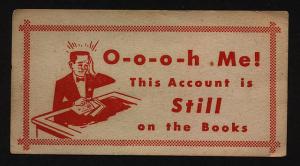401(k) Rollovers
Recently, my husband switched jobs, and in an effort to create financial balance among his multiple retirement accounts, he attempted to roll his two outstanding accounts into his newest job's 401(k). Both of the original accounts were denied rollover, so we had to investigate the 401(k) rules to determine our best strategy. Let's look at what I found.
What's a Rollover?
Rollover is simply the act of moving your money from one account to another. This most commonly happens when you change jobs. There are two types of rollovers, direct and indirect.
Direct Rollover
The best bet, if possible, is to authorize a direct rollover. You simply request in writing a direct rollover from your former employer, and your ex-employer will write a check directly to your new IRA custodian. You will not be subject to tax withholdings, taxes or penalties.
Indirect Rollover
In an indirect rollover, your former employer sends you a check, and it's your responsibility to get the funds to their appropriate destination. This can be a dangerous act for a couple of reasons. First, you only have 60 days to complete the transaction, if you don't complete the steps, then the money is treated as a cash distribution (see below). The second reason is that your employer has to withhold 20% to pay taxes in case you don't move it to a new account. So as you can see, in pretty much every way a direct rollover is easier than an indirect rollover.
Cash Distributions
A cash distribution means you take the money out of a retirement account. Unless you have reached the age limit, you'll have to pay a 10% penalty for withdrawing the money, and then you have to immediately pay taxes on it. Your employer will withhold 20%, but you may actually owe more than that. As you can see, this isn't a desirable choice unless you really need the money or are old enough to take it out without penalty (although you'll still have to pay the taxes.)
Other Details
There are many details to these actions and we'll cover some specific situations later. The key here is that when you change jobs, make sure to go ahead and rollover your retirement accounts as quickly as possible so that you don't risk having to do an indirect rollover or accidentally take a cash distribution.
In my husband's case, he had already converted both of his prior 401(k) accounts into Roth IRAs and thus couldn't move them into his company 401(k). Finally, all the rules straightened out, I can find a better balance in our multiple 401(k) accounts.
- Login to post comments
-







MoneyCone wrote:
Thu, 01/06/2011 - 16:08 Comment #: 1I would want my old 401Ks in my Roth - I have better investment options and not entirely happy with my 401K provider. I guess your husband was lucky and had a good 401K provider!
But two rules I follow: Don't leave your old 401K with your previous employer and make it very clear that you are doing a custodian transfer. People don't realize how much stress there is with an indirect rollover!
retirebyforty wrote:
Thu, 01/06/2011 - 23:02 Comment #: 2When the Mrs. left her old job, we rolled over her 401k to an IRA at a discount brokerage. This is the way to go because you are free to invest anyway you want.
When I leave my job, that's what I will do. I don't see any point into rolling it to another 401k because of the limited investment choices.
Christa Palm wrote:
Fri, 01/07/2011 - 16:08 Comment #: 3MoneyCone~thanks for the input! I hope you can get the Roth you want!
Retirebyforty, great plan in the rollover--good luck!
Daddy Paul wrote:
Mon, 01/10/2011 - 00:39 Comment #: 4Roll over for most people is the way to go. One exception would be if you are over 55 but less than 59.5. You can take money out of a 401K penalty free but not an IRA.
Christa Palm wrote:
Wed, 01/12/2011 - 15:18 Comment #: 5Daddy Paul, thanks for the input--that 4.5 year period could affect some people debating the rollover.
Jacob @ My Personal Finance Journey wrote:
Fri, 02/11/2011 - 22:22 Comment #: 6When I left my employer last year to go to graduate school, I made sure to roll my 401k account over to a Rollover IRA at Vanguard. Self directed IRA's generally offer lower fees and much greater options than employer 401k plans.
Christa Palm wrote:
Thu, 02/17/2011 - 15:32 Comment #: 7Thanks for the great tip, Jacob!